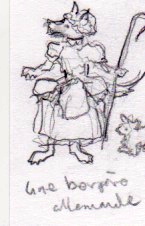The header is the beginning of a piece in the NYT Opinion section on-line on 9/25/19 (in print 9/26), “Open Offices Are a Capitalist Dead End: One story from WeWork’s inevitable blow-up: Our offices offer few spaces for deep work” by Farhad Manjoo. The first two paragraphs:
What was We thinking? That’s the only question worth asking now about the clowncar start-up known as The We Company, the money-burning, co-working behemoth whose best-known brand is WeWork.
What’s a WeWork? What WeWork works on is work. The We Company takes out long-term leases on in-demand office buildings in more than 100 cities across the globe (lately, it’s even been buying its own buildings). Then We redesigns, furnishes and variously modularizes the digs, aiming to profitably sublease small and large chunks of office space to start-ups and even big companies. Well, profitable in theory: The We Company lost $1.7 billion last year.
The business story is remarkable — you don’t see expressions like clowncar start-up in the pages of the NYT very often — but my point here is a narrow linguistic one and (at first glance) an extremely simple one, which is that
Names Is Names (NIN): A proper name is a name.
Which is to say:
A proper name is a (meaningful) expression, and not merely a form. So that, in general, a proper name has the morphosyntax appropriate to any expression with the referent of that name.
/wi/ (conventionally spelled We) is the name of a company and consequently has the morphosyntax of such a name: 3sg verb agreement (We is ambitious), possessive /wiz/ (We’s business model), etc. — like /ǽpǝl/ (conventionally spelled Apple): Apple is ambitious, Apple’s business model. The fact that English also has a 1pl pronoun /wi/ (conventionally spelled we) — (we are ambitious, our business model) — is entertaining, but essentially irrelevant, even though the name of the company was chosen with the pronoun in mind. The name was a little joke, a pun on the slant, and now Farhad Manjoo for the NYT has wielded it for a bigger joke, salting his article with instances of conspicuously 3sg (rather than 1pl) We.
Well, I will say a bit about the business story, because it’s funny-awful all on its own, and I’ll say a little more about NIN, both when it’s sturdy and straightforward (as here) and when it’s entangled in complexities.
(more…)



